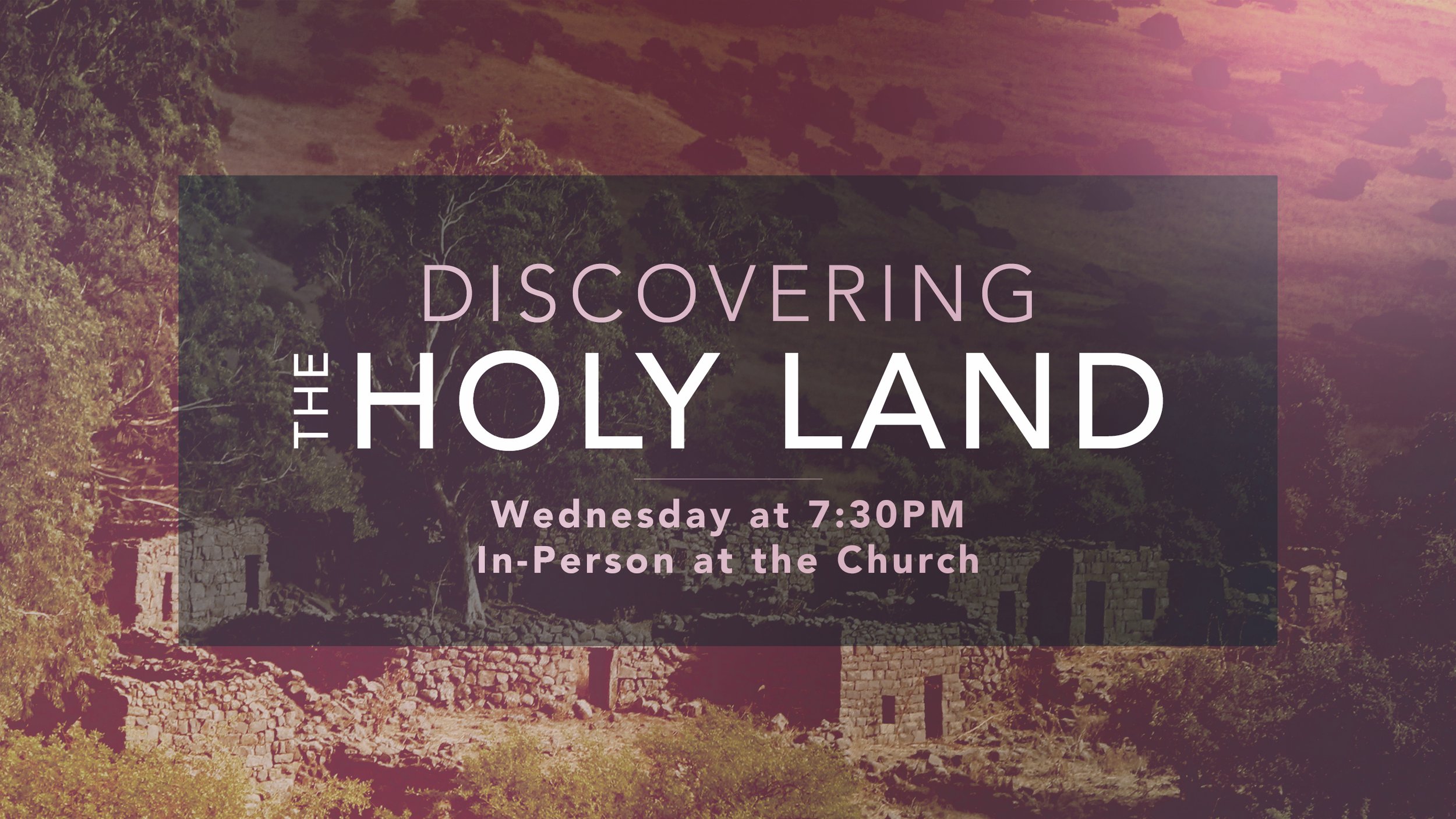November 2022
Update From Your Pastors
Dear Welling Church family,
Do you hunger for God? Fasting remains an important but often overlooked spiritual discipline in the lives of many Christians today. Why is this? Jesus, while in the wilderness, shares the importance of fasting in Matthew 4:4 by quoting Deuteronomy 8:3, “It is written, Man shall not live by bread alone, but by every word that proceedeth out of the mouth of God.” With this simple instruction, Jesus reaffirms our absolute need for God as well as His provision for our physical needs.
Fasting is frequently mentioned throughout the Bible. Moses fasted for 40 days twice. David fasted to spare the life of his illegitimate child with Bathsheba. Elijah fasted for 40 days after calling down fire from heaven. The people of Nineveh fasted and repented after hearing Jonah’s message. Ezra fasted for a safe journey. Daniel fasted. Esther fasted for three days in preparation of standing before the king. John the Baptist fasted. Barnabas and Paul fasted with the church leaders in Antioch before becoming missionaries.
Why is fasting mentioned with such regularity in the Bible? Simply put: fasting increases one’s hunger for God through physical hunger. Fasting is not a diet. Fasting is abstaining from food as an expression of our spiritual hunger for God. It’s not magical, but it is transformative. It's not mystical, but it is spiritual.
The issue is that we as Christians often go astray. We seek other things. We become preoccupied with the cares of this world. Fasting seeks to correct this mentality.
Fasting is not a way to incur favour from God through self-denial or a way to get more of God. It’s not a way of works to appease God or even a way to lose weight. Fasting is a matter of the heart (Matthew 6:1-18). It’s a physical act for a spiritual gain. It’s abstaining from something, typically food or water in the Bible, to grow closer to God.
Throughout Scripture, fasting provides an opportunity for believers to grow closer to God by increasing their hunger for Him through their physical hunger. There are predominately three ways in the Bible in which fasting helps one to grow spiritually.
The first way fasting increases one’s hunger for God is by allowing the believer to experience His presence. This experience is not rooted in a metaphysical practice but one of fundamental practicality.
For example, in a typical day, what do you do? For many of us, we wake up, eat, get ready for work, commute to a job, work, commute home, eat dinner, have family time, sit in front of a television or computer, and then go to bed, only to repeat the process the next day. During our free moments, we spend the rest of our time on a phone checking social media, reading websites, or playing games.
Where was God in that day? How many minutes, dare I say hours, do you spend focusing on God? For many of us, if we were honest, this amount would not be much. From the time we wake to the time we go to bed, our life is filled with agendas devoid of God. To exacerbate the issue, we have become slaves to our distractions (e.g. music, TV, films, social media, etc.).
The problem then becomes obvious. We have literally starved Jesus out of our lives. Jesus is no longer part of our day. We no longer long for Christ. Our lives are surrounded by things, not God, and we wonder why we may have drifted slowly away from Him.
In Matthew 4:4, after fasting for 40 days, Jesus says, “…Man shall not live by bread alone, but by every word that proceedeth out of the mouth of God.” In this passage, Christ is actively experiencing the presence of God the Father by recognising His ultimate dependence on God. Fasting directs the believer into God’s presence because trusting and seeking Him is more important than satisfying one’s need for food. You realise you are completely dependent on God because fasting allows you to be in constant communion with Him. Being hungry through fasting allows one to be constantly reminded of His presence. How is this possible? Practically speaking, every second of the day, one is reminded of their hunger. The hunger in turn not only allows time, but focused time, to meditate on why one is fasting: to be in the presence of God. As a result, one continually meditates on God.
It’s no wonder then, why fasting is closely associated with prayer. The majority of times fasting is mentioned in the Bible, it’s in connection with prayer (e.g. Psalm 35:13, Daniel 9:3, and Acts 14:23). Fasting is a means of focusing intently on prayer. Fasting cultivates an atmosphere of constant and consistent prayer because one is continually reminded of the purpose of their hunger. Jeremiah 14:12 begins, “When they fast, I will not hear their cry…” Even though contextually this verse relays God’s unwillingness to hear the Israelite’s cries through their fasting due to their sin, it clearly relates fasting and prayer as almost identical.
The second way fasting increases one’s hunger for God is by allowing the believer to express their humility before the Lord. Humility is a vital component to spiritual growth and communion with God. James 4:6 states, “…God resisteth the proud, but giveth grace unto the humble.” God resists the prideful.
Fasting is a means to humble oneself through burdening oneself. In Deuteronomy 8:3, it starts, “And he humbled (ꜥanah) thee, and suffered thee to hunger…” The Hebrew word for humbled (ꜥanah) is further defined as to oppress, humiliate, or be afflicted. In Ezra 8:21 it states, “Then I proclaimed a fast there, at the river of Ahava, that we might afflict (ꜥanah) ourselves before our God, to seek of him a right way for us…” In Isaiah 58:3 it starts, “Wherefore have we fasted, say they, and thou seest not? wherefore have we afflicted (ꜥanah) our soul…” In Psalm 35:13 it states, “… I humbled (ꜥanah) my soul with fasting; and my prayer returned into mine own bosom.” Humble believers will fast, and fasting creates an environment for humility. The two are intertwined.
Humility is displayed several ways through fasting. Repentance is shown in Jonah 3:5, “So the people of Nineveh believed God, and proclaimed a fast, and put on sackcloth, from the greatest of them even to the least of them.” Grief for sin is part of the fasting process in Joel 2:12-13, “Therefore also now, saith the Lord, turn ye even to me with all your heart, and with fasting, and with weeping, and with mourning: And rend your heart, and not your garments, and turn unto the Lord your God…” Lamenting is displayed through fasting in Nehemiah 1:4, “… I sat down and wept, and mourned certain days, and fasted, and prayed before the God of heaven.”
Christ states in Matthew 6:16 “when ye fast,” not if. Jesus assumes His followers will fast. He goes on further to warn them of fasting for the self-righteous, outward show. Jesus makes it clear in Matthew 6 that fasting, along with giving and prayer, are all matters of the heart. In Matthew 6:16-18 Jesus contrasts the intent of the pharisees with the true goal of fasting. Fasting is not about showing off one’s self-righteousness but bowing down before a righteous God.
The third way fasting increases one’s hunger for God is by aiding the believer in physical and spiritual preparation before a major event. Throughout the Bible, fasting is used to prepare God’s people for His purpose. Typically, a fast was employed before a major decision, battle, or event (e.g. Moses, Esther, Ezra, Daniel, etc.). One prominent example is Jesus, who fasted for 40 days and nights before beginning His earthly ministry. In Acts 13:1-3, the church leaders in Antioch fasted and prayed before the Holy Ghost set apart Barnabas and Paul for future missions work.
This empowered preparation through fasting is accomplished by an active seeking of the will of God. During the fast, the believer seeks God’s guidance and direction in prayer and worship. The believer desires not his will to be done, but God’s. One recognises the outcome is ultimately up to God. Today, believers can continue this spiritual discipline by seeking God through fasting before major decisions or events such as getting a new job, making a new move, dating a new person, or making a big purchase.
Fasting continues to be a life-changing means to grow closer to God. This is not a mystical experience but one of focused meditation on God and His Word. Through a continual reminder of one’s own hunger and His ultimate provision, the believer grows into a deeper understanding of God’s presence, humility before a holy God, and dedicated preparation for His will to be done.
The Elders:
Tarl Reeves & Justin Rhoades
Subscribe to Welling Church’s YouTube Channel: YouTube
Don’t forget to follow us on Facebook, Instagram, and Twitter.
November Notices
All month long we are doing a church-wide fast. Head to the home page to sign up and be a part of what God is doing this month.
Join us for our next men’s breakfast on 19 November at Toby Carvery. we have a special guest pastor from Crockenhill BAptist speaking. All men are invited and is the perfect opportunity to bring a friend.
26 November we are hosting a ladies brunch at the church. Please feel free to bring all your friends to come and hear a Bible Based challenge fro special guest speaker Paula Rhoades.
13 November we are having a special service for Remembrance Sunday. Service starts early at 10:50 so we can have a two minute moment of silence.
Join us for a night of celebrating what God has done over the past year as well as look ahead to the next year. Child care is provided for children under 10.
We are continuing our series through 1 peter about suffering for the sake of Christ. Join us at 11:00 on Sunday mornings for our church service.
Baby Steps continues to meet every Tuesday from 10:30-11:30. It is a lovely time for mums to have a Bible study together and pray while the little ones play. For more information, please see Rachel Rhoades Rachel@WellingChurch.com.
Join us each WEDNESDAY for our new bible study video series as we take an in-depth look at the Holy Land to learn more about what life was like back then and help us better understand the bible today.
In-Person: This autumn we are meeting in-person in the back hall at the church. For those who can’t make, we will post the recording on the church WhatsApp.
Grace Recovery is a small group for those struggling or have struggled with alcohol and drug addictions. Please see Jackie if you would like to attend or help serve on Thursday nights.
Primary and Secondary Children meet for Bible lessons, songs, small groups, and games each Friday night at 19:30-21:00 at the church building.
6 November at 7:00PM we are having our next Young Adult Service for 16-35 year olds! Each month (on the first Sunday) we gather together to worship God, be challenged from God’s word, and fellowship together.











